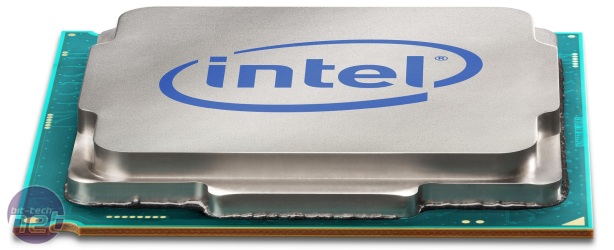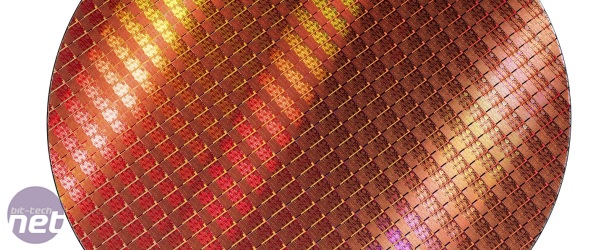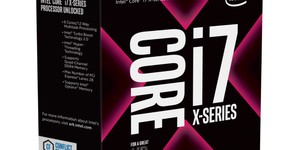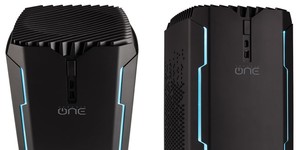Intel Core i7-7700K, Core i5-7600K (Kaby Lake) and Z270 Chipset Review
January 3, 2017 | 16:59
Companies: #bit-tech

Performance Analysis
No matter how you look at it, even with the enhanced overclocking ability which may or may not be an across-the-board phenomenon, Kaby Lake doesn't represent a meaningful upgrade from Skylake, unless you're keen to try out some extreme overclocking or want to watch Netflix on your 4K PC monitor. However, we weren't expecting it to, as it's been this way pretty much since Sandy Bridge landed and brought us the Core i5-2500K. Since then, we've seen only modest gains from launch to launch, although skip a generation or two and the differences are more pronounced thanks to increased IPC, even in games as you can see in our Skylake versus Sandy Bridge comparison here (retesting with Kaby Lake would be pointless as it performs identically to Skylake at the same clock speed).The benefits of the Z270 chipset aren't particularly compelling either. Yes, you get a few extra PCI-Express lanes for storage devices, but realistically, the vast majority of people will only be using a single GPU and M.2 SSD - any more than this will be a rare thing for the time being. The difference will come if M.2 grabs the majority of SSD market share, something that's obviously dominated by 2.5in SATA 6Gbps devices at present, and/or Intel comes up with something interesting as far as its Optane technology goes. In short, it's more of a future-proofing chipset, and you could say the same about M.2 a few years ago. Sure, when Z97 was the in-thing, no one really needed an ultra-fast M.2 SSD, but as time wore on and the likes of the SM941 and SM951 became readily available, there were plenty of people with older boards that were caught out, either with no M.2 port, or ports that didn't offer enough bandwidth.
Now, at least, with M.2 seemingly becoming the dominant next-gen SSD medium, and with SSD pricing approaching levels that could mean those with medium to large wallets could ditch their hard disks and move exclusively to SSDs, we have the means to do this, with many Z270 boards offering at least two M.2 ports and the bandwidth to cope with them.
The Core i7-7700K and Core i5-7600K are needed to take advantage of a number of other factors too, from Netflix in 4K on your PC to Intel's Optane technology, so while they in themselves don't offer much apart from possibly better overclocking, as a whole package, there's no doubt that you should be opting for a Z270 board and Kaby Lake CPU if you're building a new system. The Core i5-7600K is definitely the better of the two, at least as far as our testing goes and that of others in the industry we've spoken to. 4.8GHz will likely be an easy target, even with modest cooling, and 5GHz isn't particularly tricky, even for a 24/7 overclock.
As per usual, the Core i7-7700K offers some serious grunt in multi-threaded tests - enough to eclipse everything the Core i5-7600K could throw at it, even at stock speed. Only stepping up to an X99 system will see more performance here - the Core i7-6850K, for example, which we've added to a couple of graphs including Cinebench R15, is another step up in multi-threaded performance, thanks to its six cores and 12 threads, plus additional PCI-E lanes. It's also twice the price of the Core i7-7700K. Step out of the multi-threaded arena, though, and it usually offers modest gains at best, the exceptions being in 3D benchmarks that specifically focus on those extra threads or offer some use for the CPU's higher frequency - 3DMark Time Spy and Ashes of the Singularity's DX12 CPU benchmark being cases in point.
The Core i5-7600K has overclocking prowess on its side, and as a result, anywhere that didn't make use of the i7's additional threads saw it take the lead - it had a two second advantage in PCMark 8's 4K video encoding test for example, although this is nothing new.
Conclusion
Ultimately, both CPUs do enough to mean Skylake is consigned to the history books - if you're building a new system, a Kaby Lake CPU and Z270 motherboard should be top of your list, if you're up for some overclocking that is. The Core i7-7700K is the usual story - a hefty price premium for those extra threads courtesy of hyper-threading, while the Core i5-7600K is potentially a better overclocker and the one most of us would buy for a decent, future-proof gaming rig.We can recommend the Core i7-7700K for anyone that needs some multi-threaded grunt, but can't afford a six-core X99 system. The Core i5-7600K, though, is perhaps a bit trickier, at least if you're on a budget. We'd want to put Intel's new Core i3-7350K through its paces first before unequivocally recommending the new quad-core king as the former could work out to be great for budget systems. However, if you need the grunt of a true quad-core, then it's a great CPU, with all indications being it's a stunning overclocker, although as we mentioned at the top of the page, if you already own a K-series Skylake CPU, neither of their successors is worth the upgrade with a couple of small exceptions.
Then, of course, you have the AMD question - is Ryzen going to offer some competition for Intel's new K-series CPUs? Early indications are pointing at yes being the answer, but with very little information about AM4 motherboards and their features, not to mention how its CPUs will compete below Intel's X99 platform, until we have some concrete evidence, we'll continue to recommend Intel as our platform of choice if you need to build a system right now. If you're prepared to wait a month or two, then we'll hopefully be revisiting that question.
Intel Core i7-7700K

Intel Core i5-7600K


MSI MPG Velox 100R Chassis Review
October 14 2021 | 15:04










Want to comment? Please log in.